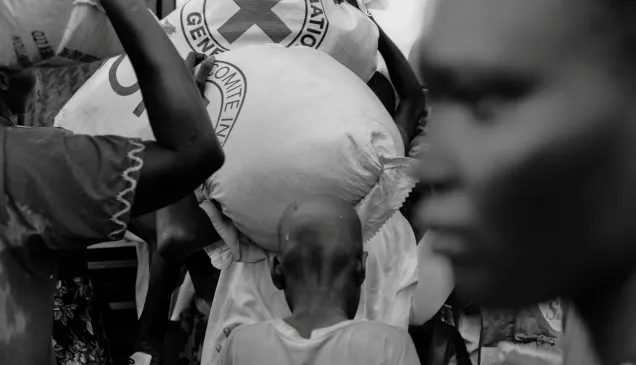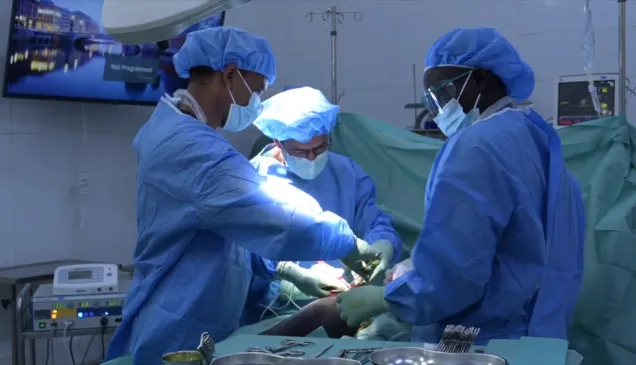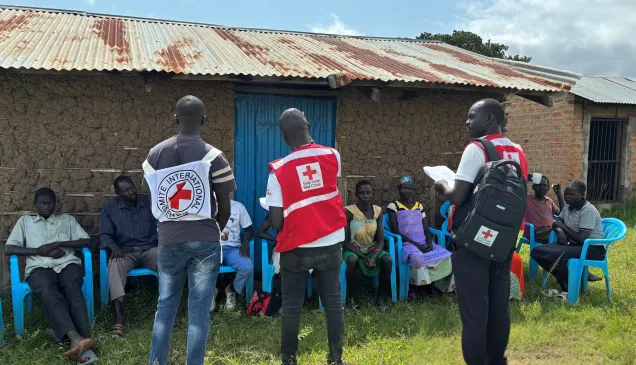Rumbek Physical Rehabilitation Centre (PRC) was opened in 2004 by Medical Care Development International, which ended its project in 2010, handing it over to the Government. The ICRC has supported the center since 2013, while some of the South Sudanese staff have been working there since the start. Gabriel is the manager of the PRC. He is also a technician for making prostheses and orthoses.
South Sudan: Helping to improve the lives of people with disabilities
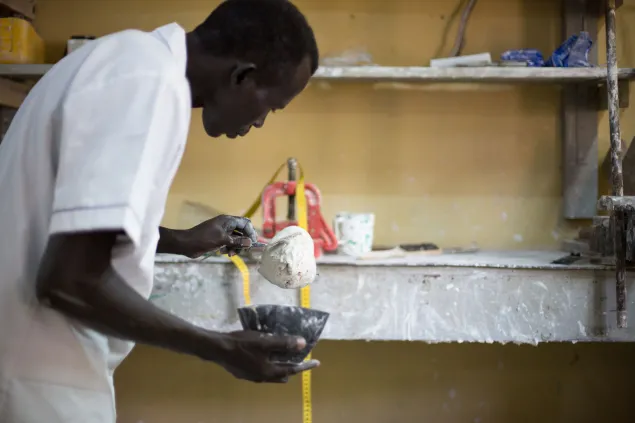
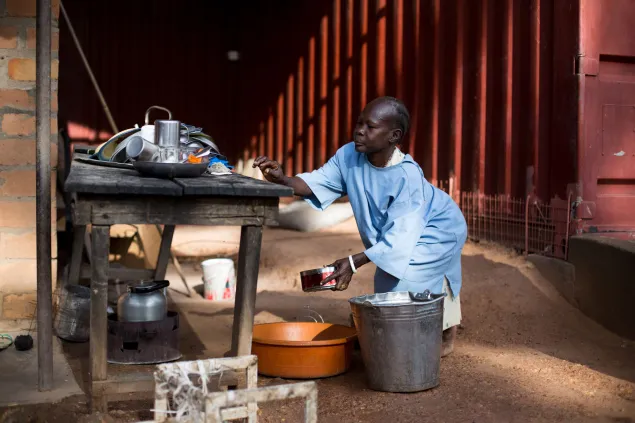
“I want to work here until I get too old to come”, says Martha Aku. She is one of seven staff members of the “Akolcin” group, a social inclusion initiative for persons with physical disabilities. It was started in 2014 with the goal to support and include vulnerable people in the society.
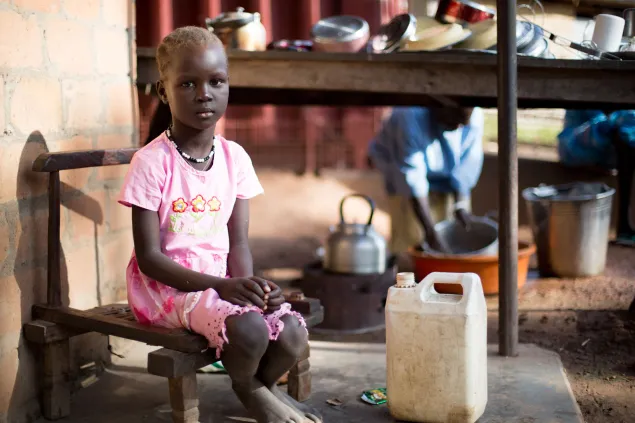
Rebecca is six years old and she often follows her aunt Martha to work. In the local culture, Martha is now considered to have the role of a man, because she helps support her family. Martha lives together with her brother, his wife and their three children. Rebecca calls Martha her mother.
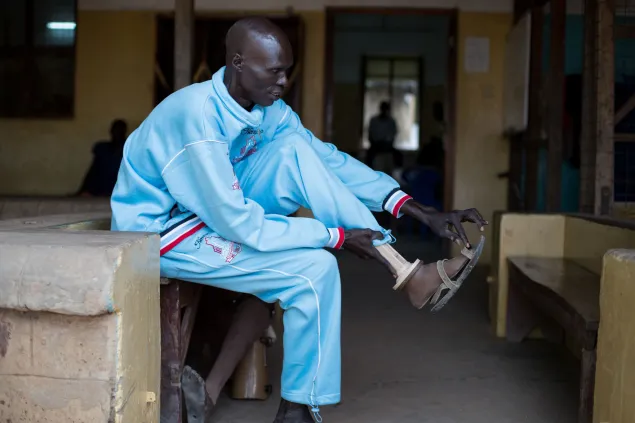
Makur Madof Diet (46) is both a patient and a staff member. His left leg was amputated after being injured by a gunshot in 1998. “I am happy that I am disabled, because it makes it possible for me to know exactly where it hurts when I help other patients”, he says.
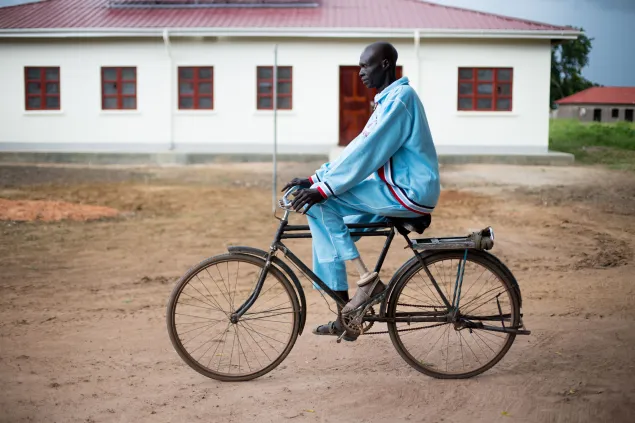
When Makur got injured, his father got him a bike. He told him that he had to be strong and think about the future of his children. Now Makur uses his bike to go everywhere. “Sometimes I hear about potential patients in the villages and I go there to talk to them. I tell them my story and I show them where I am now. People here need support, especially the disabled. Without help, life can be very difficult”.
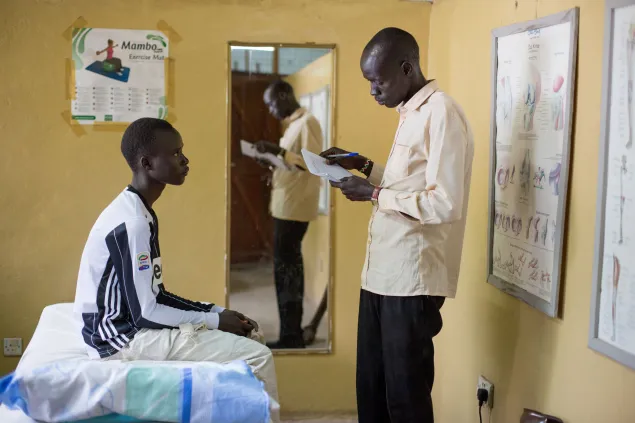
“The staff here are like God to me. They have re-created me in a way that only God could do. I had no leg and then they made this device for me”, says Bong Juir Juir (19). His left leg had to be amputated after a snakebite when he was only seven years old. He was the 9th patient to be registered at the PRC in Rumbek in 2004.
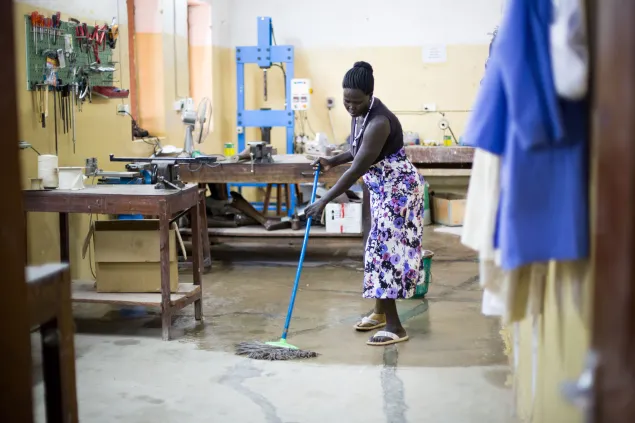
Mary is one of the seven staff members in the “Alkocin” group. They are in charge of cleaning, cooking and cultivating land around the PRC.
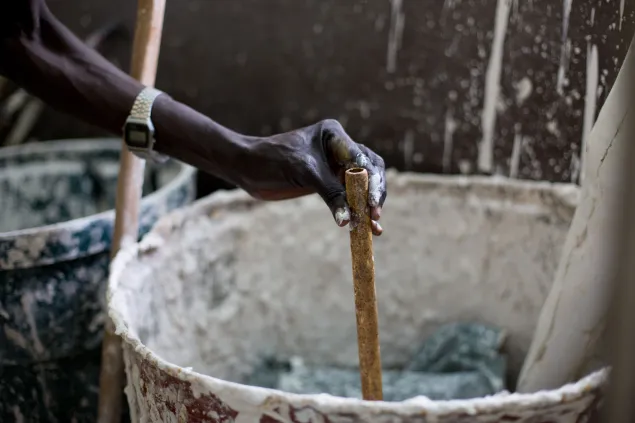
The Physical Rehabilitation Program in South Sudan provides services for persons with physical disabilities to restore their mobility and help them rebuild their lives. In 2017, the ICRC supports centers in Juba, Rumbek and Wau.
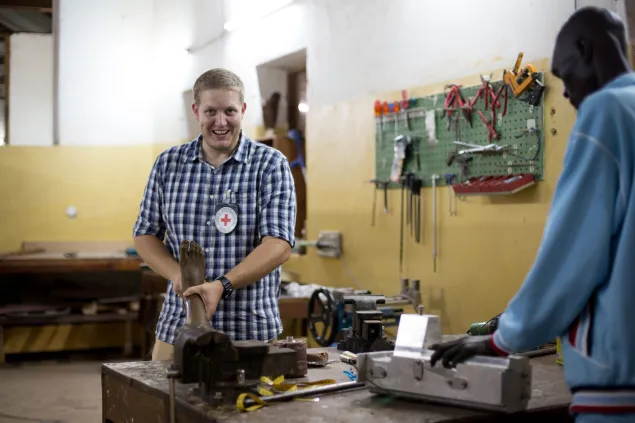
“My work here is to support and strengthen the capacity of the Physical Rehabilitation Centre. I have encouraged Makur to make his new prosthesis and that is what he is doing now”, says Rayner Erasmus, an ortho-prosthetist delegate at the PRC in Rumbek.
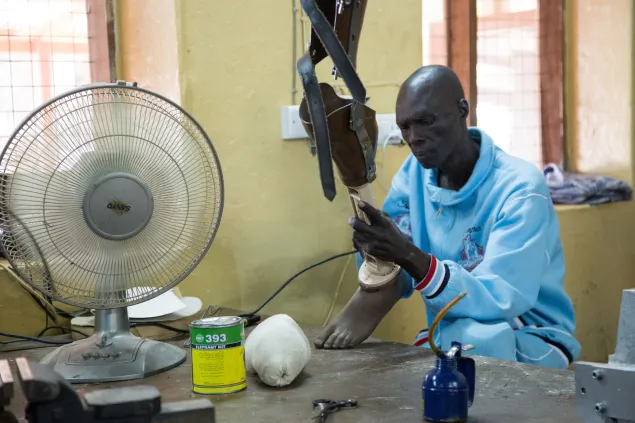
“I am very happy about the work I am doing here. I feel 100 percent! I sometimes think that without my prosthesis, my family would suffer from hunger, sickness and all the bad things that happens in South Sudan”, Makur says. He is in the process of making his own prosthesis.
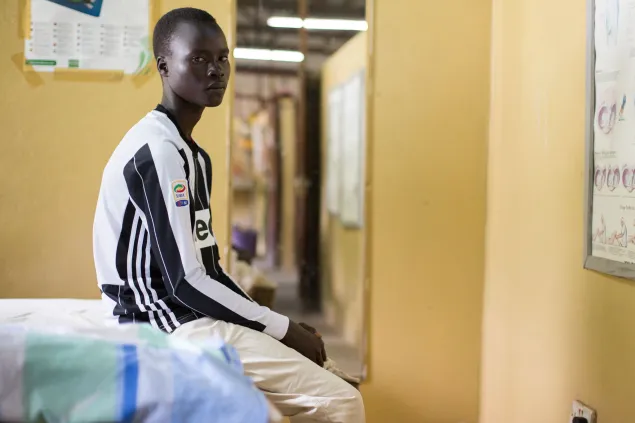
“The snake that bit me was so long and big. It was black and grey and the pattern looked like an army uniform. He attacked me while I was sitting and after he bit me, his face stood up, like a cobra”, Bong Juir Juir says. “After the bite, my leg started to rot and flesh fell off my leg so I could see the bone.”
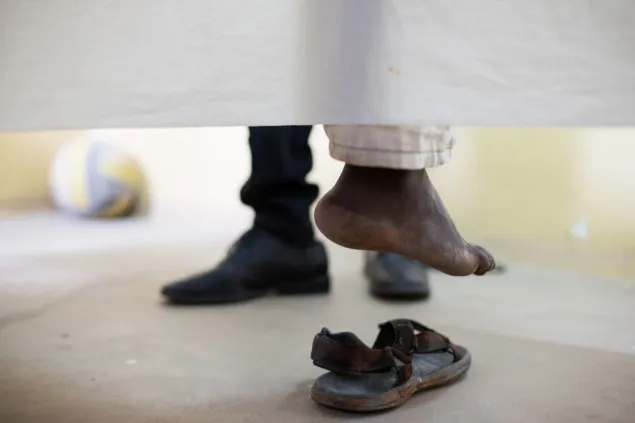
Bong was working as a cattle herder when he was bitten by a snake. After his leg was amputated, his parents didn’t think he could work anymore and he was sent to school. In fluent English, he says, “Now, I think maybe this was a good thing, because I have been able to go to school. I want to take education and also work with making prostheses.”
After decades of war, thousands of people are living with disabilities in South Sudan.
Approximately 75 percent of the injuries at the Physical Rehabilitation Programmes (PRP) centre in Rumbek are weapon related. The ICRC supports the center with incentives for staff, training of local staff, provision of material for devices, support to build a new dormitory for the patients, and daily meals.
The center had 561 patients in 2016 and by August 2017 it already had 460, an increase of 28 percent compared to the same time the previous year.

